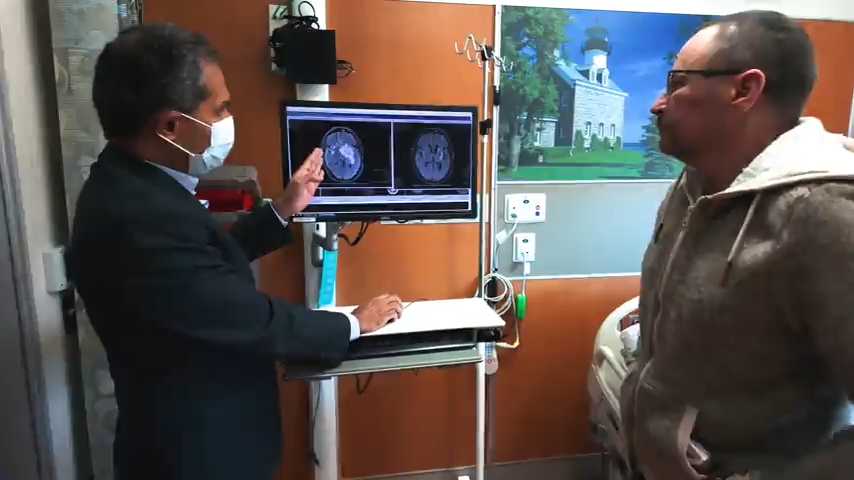D. Britton “Britt” Johnston ’85 (ENG) remains ahead of the curve when it comes to anticipating the future direction of database technology. As head of Microsoft’s SQL appliance engineering group in Seattle, Johnston is eager to see the evolution of cloud computing over the coming years.
Cloud computing is a term used to describe the delivery of computing resources, software, and information as a utility instead of as a product.
“Imagine a future where there are large data centers that are shared, like utilities,” Johnston says, comparing such centers to an “electrical grid” that would provide individuals and organizations with the ability to access much more computing capacity than is currently possible.
“We’re evolving toward a world where the amount of computing resources that anyone needs can be available at a moment’s notice,” says Johnston, who is currently at work building a private cloud appliance that would offer the benefits of the cloud while allowing people to maintain control of the hardware in their own data center.
Johnston has been a longtime innovator in the database industry, having created two startup companies within the past 15 years to stay ahead of the curve of developing technology. But it was research he participated in as an undergraduate at UConn that Johnston says helped shape his interest in databases. He credits one of his undergraduate professors, the late Fred Maryanski ’74 Ph.D., the first head of the Department of Computer Science and Engineering, as his inspiration for delving “deep into database technology.”
At a time when personal computers were only just being introduced to consumers, Johnston’s research at UConn was dedicated to understanding how relational databases could be used for business applications. “That was a very novel concept,” Johnston says. “Ultimately, it led me into my entire career.”
Relational databases, Johnston explains, can efficiently store large amounts of data. Today such technology, which has since evolved into a $40 billion industry, underpins text messaging, credit card systems, trading systems, banking, and social networking.
More than 25 years since graduating from UConn, Johnston can’t bring himself to let go of an old notebook from his digital design laboratory course. “It was my first sort of engineering notebook, where I captured thoughts and used them to communicate to other people,” he said. “It wasn’t a term paper or mathematics homework; it was real engineering thinking going on. That’s the most important thing I got from UConn, learning how to communicate as an engineer.”




